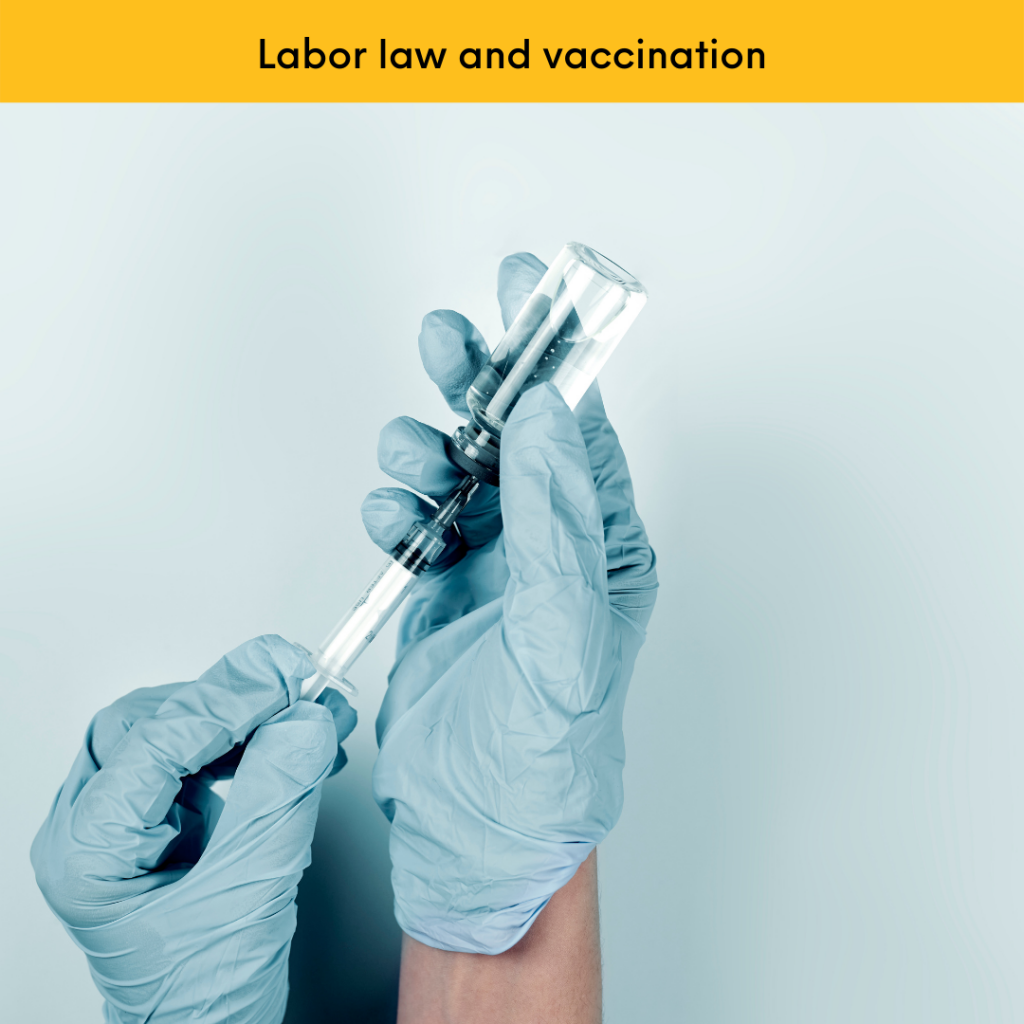
Published 22 February 2021, The Daily Tribune
The government has hoped that COVID-19 vaccines will help ease the health and economic hardships posed by the pandemic. But with concerns on the vaccine’s safety and availability, employers may wonder if they can require mandatory vaccination to ensure not just the safety of the employees, but of the entire workplace. Employees are also concerned on possible side effects; can they refuse to be vaccinated despite, for instance, the employer’s mandatory vaccination policy?
I surmise the answer is more complicated that we are prepared to accept – but perhaps we can seek guidance under related legal concepts. The Department of Labor and Employment (DOLE) and other government agencies, after all, have yet to provide their policy on the same.
But at the outset, the reasoning may be more practical than legal. Remember, even at the height of the pandemic, testing of employees was declared to be non-mandatory although encouraged. Testing was considered as then the most effective way to ensure the workplace safety and that of employees. With the availability of COVID-19 safety and prevention measures in the workplace, it would be more difficult to require vaccination as a condition for work continuation, especially if the concerns raised involve constitutional guarantees and health & safety considerations.
Perhaps employers will attempt to justify a mandatory vaccination policy under “management prerogative,” but it is a mistake to assume any and all managerial employees are valid under this principle. The right of an employer to regulate all aspects of employment gives employers the freedom to regulate, according to their discretion and best judgment, all aspects of employment and matters concerning the conduct of their business. But this is not unbridled. In Sy vs. Neat, Inc. (November 27, 2017, G.R. No. 213748), the court reminded that employers’ directives must always be fair and reasonable.
On the issue of fairness and reasonability, invoking management prerogative as basis for mandatory vaccination as a company policy poses many challenges.
First, the issue of mandatory vaccination is not strictly a matter involving the conduct of business but involves employees’ right to freedom of choice, or even freedom of exercise of religion in cases where their religion prohibits or limits the same. Hence, there are serious constitutional challenges that may be raised and such are considerations that must be taken seriously, involving as they do fundamental freedoms guarantees.
Second, surveys reveal that reservations on the vaccine mostly have to do with its safety and possible side effects. Not even experts can guarantee that the vaccine is absolutely and totally safe, 100%. Can employees be faulted and be accused as having a wrongful attitude in having reservations about getting the vaccine? Furthermore, refusal to be vaccinated against COVID-19 is not in violation of any law.
Third, while management prerogative covers certain disciplinary measures, employees may only be terminated or subject to disciplinary action for justified causes. At this juncture, it is highly tenuous to argue that failure to adhere to mandatory vaccination is a justified cause for disciplinary action, such as on grounds of gross misconduct or insubordination.
In order for serious misconduct to justify dismissal, these requisites must be present: (a) it must be serious; (b) it must relate to the performance of the employee’s duties, showing that the employee has become unfit to continue working for the employer, and (c) it must have been performed with wrongful intent. Vaccination does not relate to the performance of the employee’s duties and failure to undertake one does not automatically render the employee unfit for work. Neither can it be taken to mean that the employee refuses to be vaccinated out of a wrongful intent.
On the other hand, insubordination requires that orders, regulations or instructions of the employer or representative must be (a) reasonable and lawful; (b) sufficiently known to the employee; (c) in connection with the duties which the employee has been engaged to discharge; and (d) the employee’s assailed conduct must have been willful or intentional, the willfulness being characterized by a wrongful and perverse attitude. These requirements pose a challenge for employers, for mandatory COVID-19 vaccination as a company policy can be subject to the tests of reasonability and legality as pointed out earlier. It also raises the question of cost – can the employers require the employees to shoulder their own costs for availing the vaccine?
There are still many things to consider and we will have to wait and see the policy directives of government on this issue. But at this point, given the many legal challenges and potential constitutional issues raised by requiring COVID-19 vaccination for employees, perhaps businesses can consider to heighten the employees’ awareness on the benefits and risks of this vaccine. Informed decision is an instrument for good, but forced decisions make for poor judgment – and perhaps in this case, even a cause for serious labor and constitutional challenge.
For comments and questions, please send an email to cabdo@divinalaw.com.

